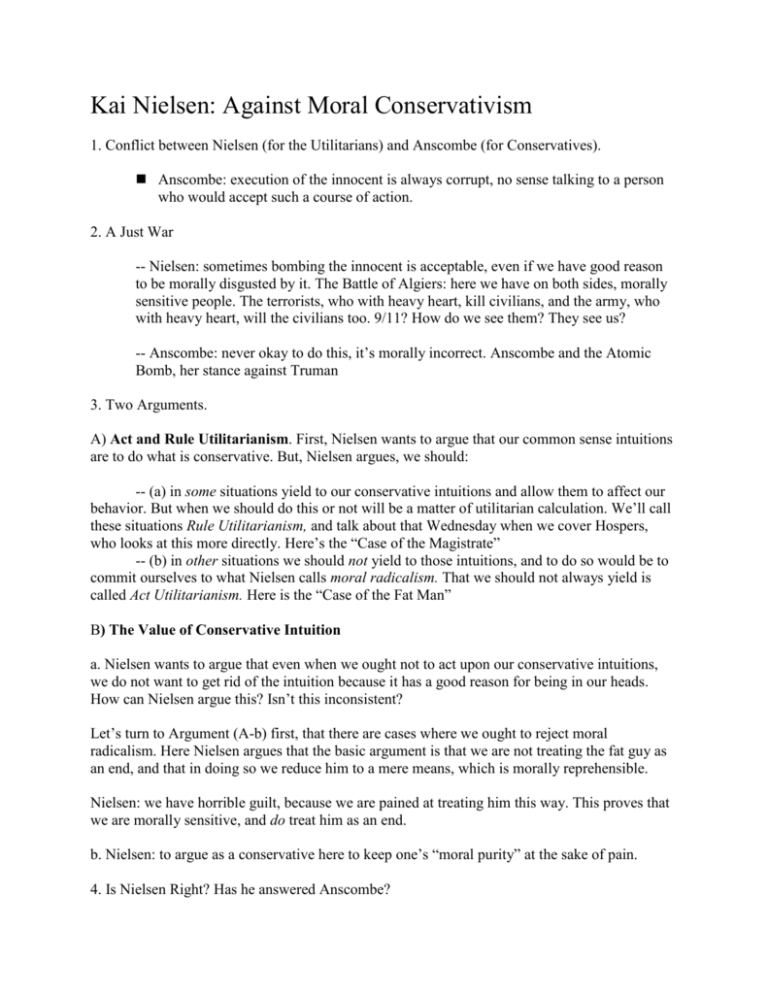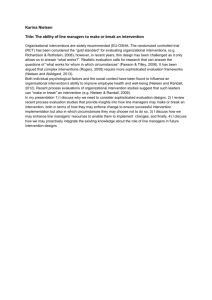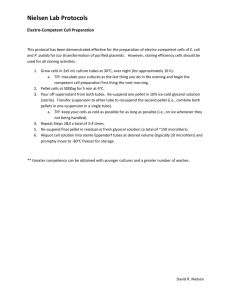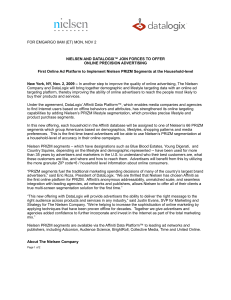Nielsen vs. Anscombe: Moral Conservatism & Utilitarianism
advertisement

Kai Nielsen: Against Moral Conservativism 1. Conflict between Nielsen (for the Utilitarians) and Anscombe (for Conservatives). Anscombe: execution of the innocent is always corrupt, no sense talking to a person who would accept such a course of action. 2. A Just War -- Nielsen: sometimes bombing the innocent is acceptable, even if we have good reason to be morally disgusted by it. The Battle of Algiers: here we have on both sides, morally sensitive people. The terrorists, who with heavy heart, kill civilians, and the army, who with heavy heart, will the civilians too. 9/11? How do we see them? They see us? -- Anscombe: never okay to do this, it’s morally incorrect. Anscombe and the Atomic Bomb, her stance against Truman 3. Two Arguments. A) Act and Rule Utilitarianism. First, Nielsen wants to argue that our common sense intuitions are to do what is conservative. But, Nielsen argues, we should: -- (a) in some situations yield to our conservative intuitions and allow them to affect our behavior. But when we should do this or not will be a matter of utilitarian calculation. We’ll call these situations Rule Utilitarianism, and talk about that Wednesday when we cover Hospers, who looks at this more directly. Here’s the “Case of the Magistrate” -- (b) in other situations we should not yield to those intuitions, and to do so would be to commit ourselves to what Nielsen calls moral radicalism. That we should not always yield is called Act Utilitarianism. Here is the “Case of the Fat Man” B) The Value of Conservative Intuition a. Nielsen wants to argue that even when we ought not to act upon our conservative intuitions, we do not want to get rid of the intuition because it has a good reason for being in our heads. How can Nielsen argue this? Isn’t this inconsistent? Let’s turn to Argument (A-b) first, that there are cases where we ought to reject moral radicalism. Here Nielsen argues that the basic argument is that we are not treating the fat guy as an end, and that in doing so we reduce him to a mere means, which is morally reprehensible. Nielsen: we have horrible guilt, because we are pained at treating him this way. This proves that we are morally sensitive, and do treat him as an end. b. Nielsen: to argue as a conservative here to keep one’s “moral purity” at the sake of pain. 4. Is Nielsen Right? Has he answered Anscombe?











